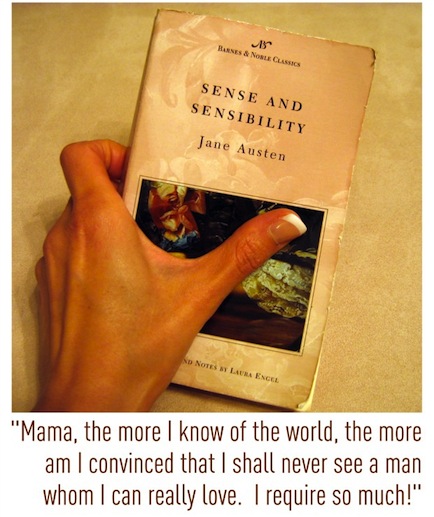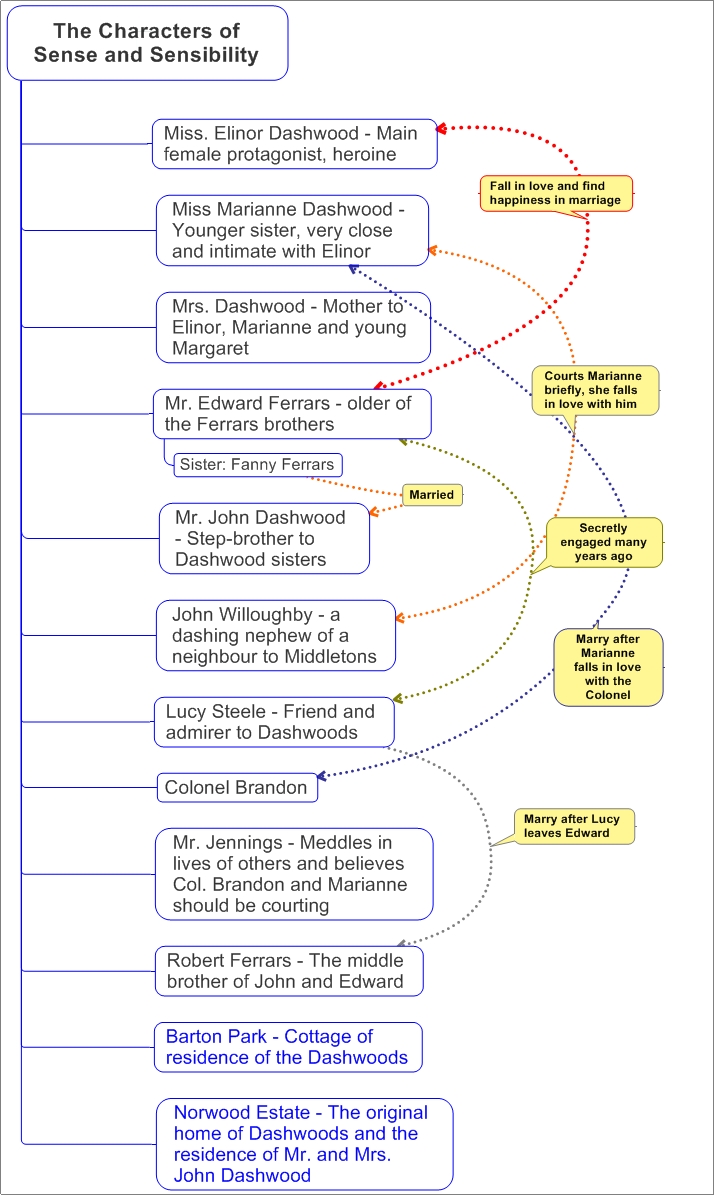Sense and Sensibility was published in 1811 when Jane Austen was just 36 years old, and only 2 years before the publication of Pride and Prejudice. In the span of such a short time, and almost 200 years ago from today, Jane Austen produced two timeless classics. I find it bitterly ironic that in almost every case, a classic is known by the whole world over – celebrated, written about, studied, discussed in painstaking details in a classroom, read aloud in packed lecture halls and admired by masses – yet the creator of it all is spared this knowledge of success.

Perhaps it is impossible to recognize a classic on the day that it is born; after all it has to pass the test of time and future generations. Nonetheless, I find it cruel – simply cruel – that we cannot properly share the impact of the classic with its artist. The comfort I allow myself is this – the timeless classics are produced by intelligent, creative, rare minds – and that mind already is aware of that knowledge that what it produces will survive long after it itself has ceased to exist.
Sense and Sensibility’s characters add richness and color to the story, where the central theme revolves around two sisters, opposite in character and ideals, both in mild struggle with the life choices afforded to them because of their situation, their connections, and their small fortune. The Dashwood sisters, Elinor and Marrianne, live with Mrs. Dashwood, their mother and younger sister, Margaret. When Mr. Dashwood dies, he leaves the decision of their care in the hands of his son, John. John has never played the role of a compassionate step-brother to his father’s other family but he is not vindictive or evil. His wife Fanny is. The Dashwoods are politely and slowly forced out of their beloved home in Norwood, as John is persuaded out of any kindness that Fanny found appropriate for their living situation. The compassionate cousin of Mrs. Dashwood, Sir John Middleton, offers the family to live in a small cottage, Barton Park, for as long as they shall like.
The plot grows to center around the dreams, desires, and deeds of our heroines, Elinor and Marianne. Elinor is reserved, measured, practical, sensible in her decisions, ever so selfless as she always places the concerns and cares of her mother and sister above her own. Marianne lives in a world of romance, idealistic notions of love and the human heart, a world colored with Shakespeare’s sonnets and the deep green hills of England. Elinor rules her feelings; Marianne submits to hers. Elinor thinks before she acts on her emotions; Marianne flows with the whims and fancies of her emotions. Elinor is neither musical nor pretending to be; Marianne lives and breathes her piano forte and comes alive with singing. Elinor filters passion with her head first before applying it to heart; Marianne feels passion with all her life and might and not an ounce less. One might think that the only thing the two sisters share is their undeniable love and sacrifice for one another’s happiness.
I could see two main parallels between Sense and Sensibility and Pride and Prejudice. First, the strong theme of sisterhood resonates in both novels, as do Austen’s account of detailed measures of character and personality for each sister. The sisters in both novels are distinctly unique in their ideals of the world. Elinor Dashwood and Elizabeth Bennet would form a friendship in real life, while Marianne Dashwood and Jane Bennet, while different from their sisters, are also very unique in their own right.
Second, Colonel Brandon and Mr. Darcy share similar honorable deeds – Colonel Brandon saves a young woman he loves from destitution and poverty and takes her daughter into custody, whilst all the misery was brought about by Willoughby, Marianne’s heart throb. Mr. Darcy saves his sister and also Elizabeth’s youngest sister, Lydia, from disgracing the respective families as a result of Mr. Wickam’s actions. Both gentlemen find their fate in the hands of the respective sisters, after considerable trials and tribulation.
Reading is the best pastime for an active mind! If you like to see the other book reviews, check the index of In Print.

The sense of duty and responsibility from Elinor is unparalleled. When she learns that Lucy is secretly engaged to the love of her life, Edward, she is stunned and saddened when the terrible news is confirmed as true. We do not see a single outburst of anger, frustration, disappointment from Elinor’s lips or thoughts. She continues to care for Marianne’s deep wounds over Willoughby and does not mention a word of her own loss. For four months, she is resilient and silent to even Marianne, for she has promised Lucy to keep the secret for her. How she endures it all is a testament to her character. She exerts herself to be strong, and act with dignity even at the expense of her own happiness.
Elinor’s speech, after Marianne has discovered this truth, is magnificent – it is one of many great parts of the book, displaying in full the beauty and articulation of character that only Austen is capable of doing so well: “This person’s suspicions I have had to oppose, by endeavoring to appear indifferent where I have been most deeply interested”, speaking of Lucy confiding in her, “I have had her hopes and exultation to listen to again and again. I have known myself to be divided from Edward for ever, without hearing one circumstance that could make me less desire the connection. Nothing has proved him unworthy, nor has anything declared him indifferent to me.” She goes on painfully to add, “I have had to content against the unkindness of his sister, and the insolence of his mother, and have suffered the punishment of an attachment without enjoying its advantages”.
Perhaps it is ironic that Elinor who is the sensible one with such measured approach to her desires is in the end united with the true love of her life, Edward – while Marianne, who is the sensitive, emotional, passionate, idealistic one, is rejected by Willoughby, suffers greatly in love, and is at last united with Colonel Brandon, whom she neither liked nor respected earlier in the story. Is Austen telling us that it is better to be sensitive or sensible, or that both will do as they may, and life will happen all around us, and we shall never choose our destiny – rather, it chooses us?
The 1995 movie adaptation is exquisite. Emma Thompson as Emma, Kate Winslet as Marianne and Hugh Grant as Edward, the dynamics and chemistry, the character portrayals to that of the book, and the acting, oh the acting, should alone rank this as one of the best movie adaptations of all time. My favorite scene is at the very end, when Elinor, at long last, bursts forth with strong emotion for Edward, a few moments before he proposes to her. She sobs openly, from happiness and relief, on finding that Edward is unattached and that the last of her hopes are not shattered after all. She keeps from sharing her deepest sorrows only to show the remnants of what she suffered at the hour of her utmost joy.

 I am Farnoosh, the founder of Prolific Living. So glad you are here. My mission is to empower you to unblock your creative genius to live your dream life.
I am Farnoosh, the founder of Prolific Living. So glad you are here. My mission is to empower you to unblock your creative genius to live your dream life.